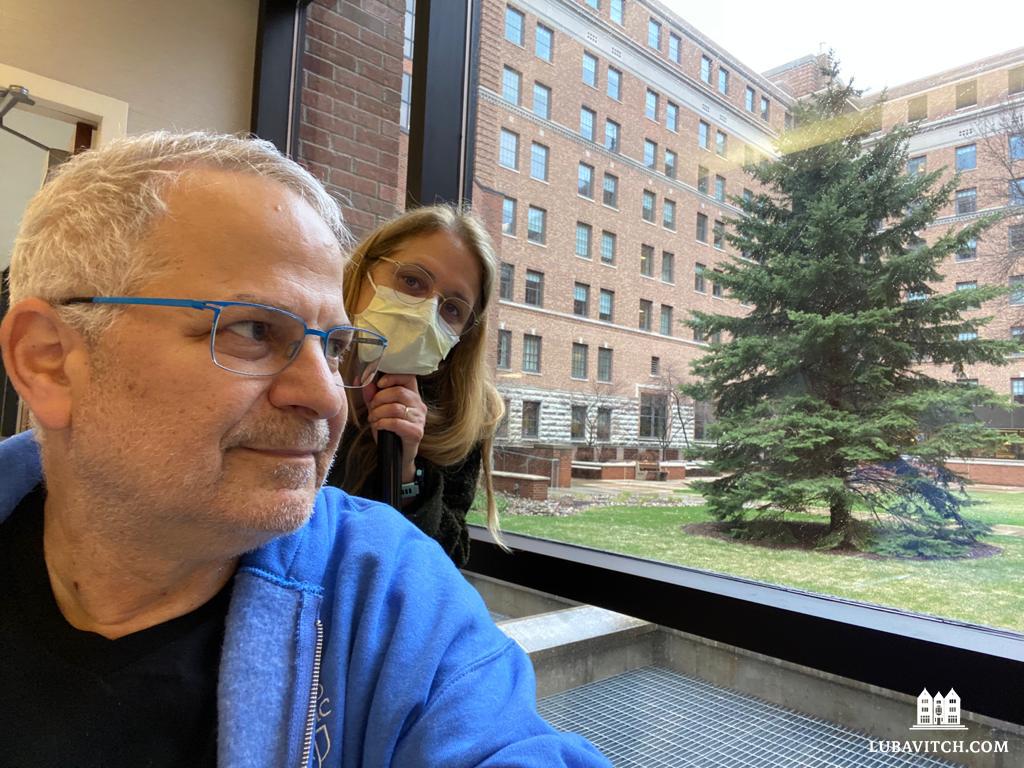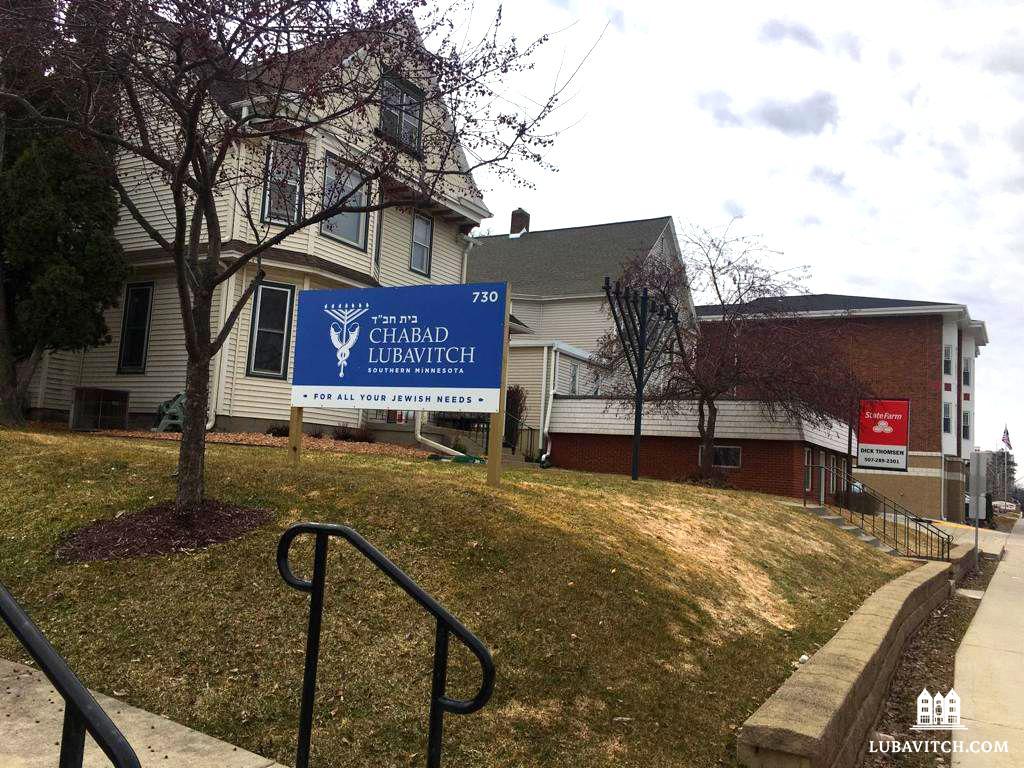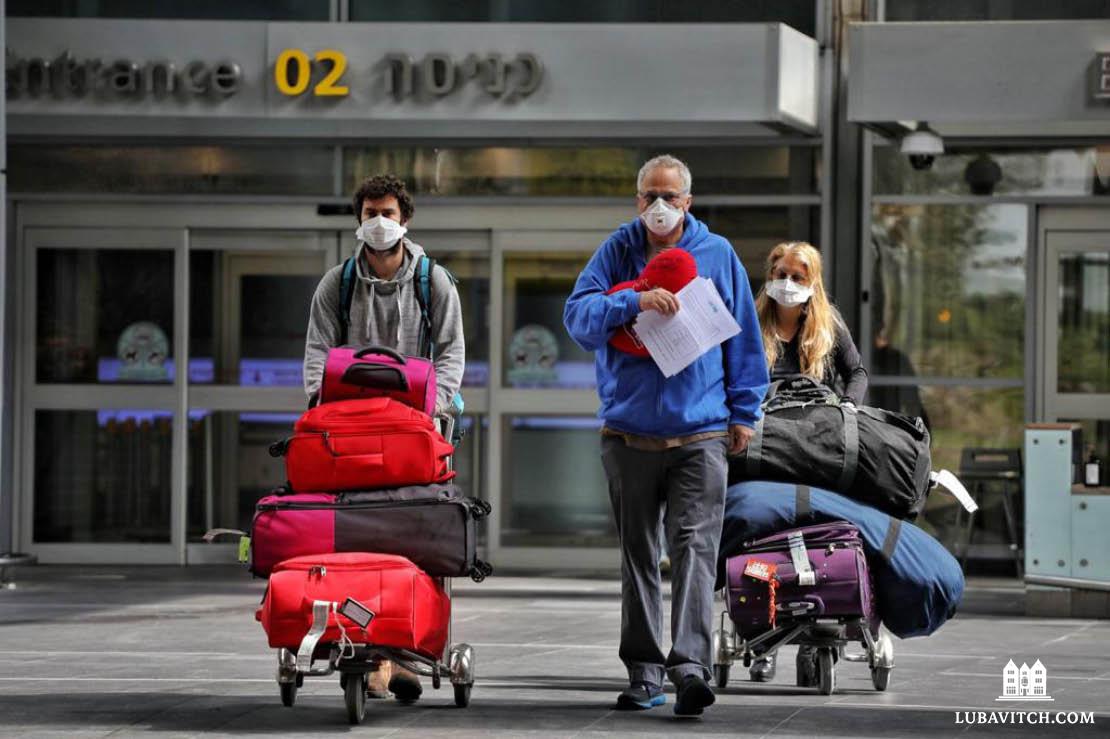Yiftah and Sigal Geva live in Israel. Five years ago, Yiftah was diagnosed with hypertrophic cardiomyopathy (HCM), which causes thickening of the heart muscle. His doctor advised septal myectomy surgery, an open-heart procedure. The Israeli couple flew six thousand miles to the Mayo Clinic in Rochester, Minnesota, where Yiftah was to undergo surgery.
A few days after they arrived, in March, 2020, the World Health Organization declared COVID-19 a global pandemic. Hotels were deserted. Shops were closed. At the Mayo Clinic, Yiftah and Sigal found an almost empty hospital.
The surgery went well, and within a couple of days, Yiftah was walking down the vacant corridors unassisted. It was eerie and strange, he recalled: of the eighty rooms in that department, only three were occupied. Visitors were not allowed.
Sigal shared her experience with Lubavitch International:
I waved goodbye to Yiftah. The staff promised to keep me updated on his progress. And at first, they did. I received an email when he went into surgery, when it was over, and whenever his status changed.
We had booked a hotel across the street from the clinic so that I could spend the days with Yiftah, but that wasn’t allowed so I sat by myself in the hotel, concerned about my husband.
I had never seen thirty-three degrees Fahrenheit on the weather forecast. My English isn’t great, and I felt so alone. I worried, not knowing how long they would let Yiftah stay in the hospital. I worried that air travel would be shut down before we return to Israel. Was it even safe for us to fly? Even the hotel couldn’t say how long they would be open to guests.
And Passover was coming. I am not a religious person, but my traditions are important to me. We were supposed to fly to New Jersey to do the Seder with friends, but we had to scrap that plan.
I walked through the cold streets of Rochester, despondent and lonely. As I turned around to go back to my hotel, I noticed a sign that said “Chabad House.” That’s an illusion, I thought.
Friday afternoon, two days after the surgery, I began to feel frantic. The hospital stopped sending me updates on Yiftah’s condition. I needed to find a bigger place to stay so I could care for my husband and prepare some kind of Seder. How would I even begin to find matzah?
“You need to get out of the hotel room,” a friend told me. “Go for a walk and look around the city.” So I did. I walked through the cold streets of Rochester, despondent and lonely. As I turned around to go back to my hotel, I noticed a sign that said “Chabad House.”
That’s an illusion, I thought. Then I saw a rabbi outside the building, talking on his phone. I began to wave and call out, “Shalom! Shalom!” Eventually, Rabbi Dovid Greene looked up. “Are you talking to me?” he asked.
It was late on Friday. The sky was darkening and it was turning colder, but the rabbi listened to my story. We talked for a long time. He would help me find a place and arrange all that I needed for Passover. His wife, Chanie, came out too, and in the middle of their last-minute Shabbat preparations, they took the time to reassure me – a woman they’d never met before.
It was the most special Kabbalat Shabbat ever. More than the help they offered, it was like getting a warm hug. They made me feel safe. They calmed my fears.
I walked back to my hotel feeling lighter. I knew I was not alone.
The following week we found a house to rent. The rabbi asked me for a list of everything I needed for Passover. By the time Yiftah was discharged the next Friday, a few days before the holiday, I was all set up. I welcomed my husband back with a bowl of hot, homemade soup.
If I would meet a rabbi in the streets of Haifa, or Tel Aviv, I’d walk right past him. But I was a stranger in a frigid, foreign land, and seeing a Chabad rabbi was a sweet answer to my prayers, a gift from above.


This article appeared in the Lubavitch International Magazine – Spring 2021 issue. To subscribe and gain access to previous magazines please click here.

Be the first to write a comment.